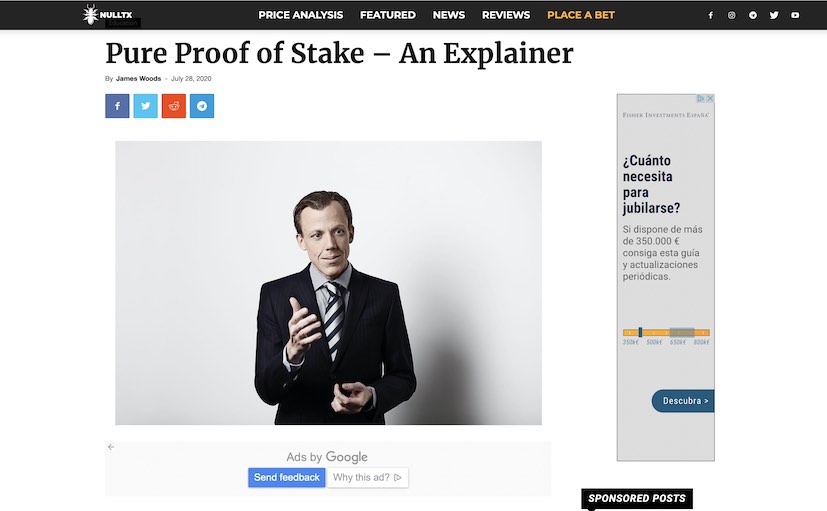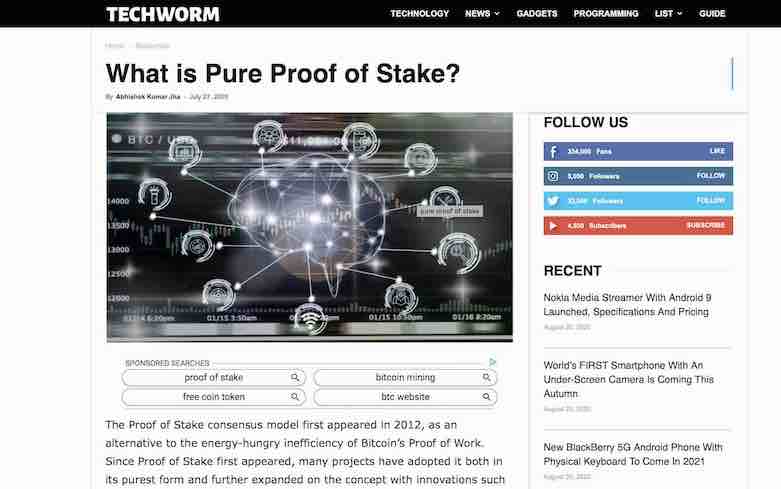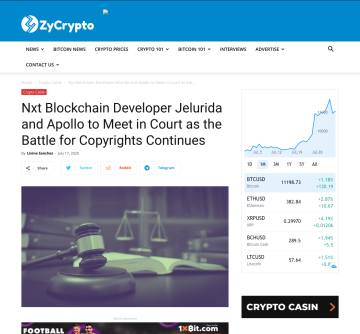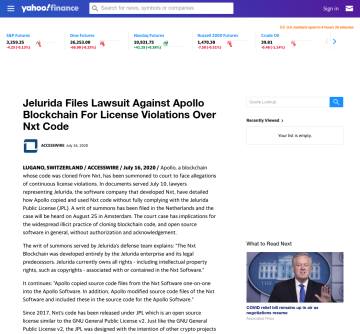Media Mentions
Dutch Regulator Approves Tokenized Real Estate Crowdfunding Platform
Cointelegraph: Max Crowdfund, a blockchain-powered real estate crowdfunding platform connecting property developers and investors, has received approval from the Financial Markets Authority in the Netherlands. The platform will be powered by Jelurida’s Ardor blockchain, with Kekem emphasizing its “multichain architecture” in allowing companies to “spawn their independent child chain” from the platform as appealing to MPG’s needs.
July 29, 2020


Pure Proof of Stake – An Explainer
Nulltx: It’s worth noting that despite King and Nadal pioneering the concept of Proof of Stake, Peercoin wasn’t a pure Proof of Stake blockchain. It operated a hybrid consensus under which Proof of Work provided the initial coin minting but would be replaced by Proof of Stake over time as coins became available. The first blockchain to launch with an initial coin balance and run on a pure Proof of Stake consensus from the genesis block was Nxt, which launched in November 2013. It was closely followed by Blackcoin, which launched less than six months later.
July 28, 2020
What is Pure Proof of Stake?
Techworm: The Proof of Stake concept was originally pioneered by Sunny King and Scott Nadal in the white paper for Peercoin. While the credit for the overall idea absolutely belongs to them, Peercoin was a hybrid consensus, using a combination of Proof of Work and Proof of Stake. The first implementation of a pure Proof of Stake consensus was with Nxt, which launched its mainnet in 2013, closely followed by Blackcoin, which launched in early 2014.
July 27, 2020


Nxt Blockchain Developer Jelurida and Apollo to Meet in Court as the Battle for Copyrights Continues
ZyCrypto: Crypto is headed to the courts next month when lawyers for Nxt developer Jelurida will present their case against the Apollo blockchain. A lengthy writ of summons outlining the case against Apollo claims alleged repeated violations of the open-source licensing agreement, primarily involving alleged failure to credit Jelurida as the code’s creator. In a final attempt to obtain the attribution it believes it is owed, Jelurida has on July 10 taken the matter to the Dutch courts to arbitrate.
July 17, 2020
BBB Wise Giving Alliance launches blockchain donation platform
Ledger Insights: Charity monitoring organization BBB Wise Giving Alliance (WGA) recently launched the blockchain-based GiveSafely.io donation platform. The solution aims to provide a safe way to donate and ensure the money reaches the charity while preserving data privacy. Participating charities include Save the Children and Cure Alzheimer’s Fund. GiveSafely.io is built on the Ardor blockchain, the platform from Jelurida. One of the benefits of using blockchain is that GiveSafely does not have access to any donor data, and it ensures donations go directly to the charity.
July 16, 2020


Jelurida Files Lawsuit Against Apollo Blockchain For License Violations Over Nxt Code
Yahoo finance: Apollo, a blockchain whose code was cloned from Nxt, has been summoned to court to face allegations of continuous license violations. In documents served July 10, lawyers representing Jelurida, the software company that developed Nxt, have detailed how Apollo copied and used Nxt code without fully complying with the Jelurida Public License (JPL). A writ of summons has been filed in the Netherlands and the case will be heard on August 25 in Amsterdam. The court case has implications for the widespread illicit practice of cloning blockchain code, and open source software in general, without authorization and acknowledgement.
July 16, 2020